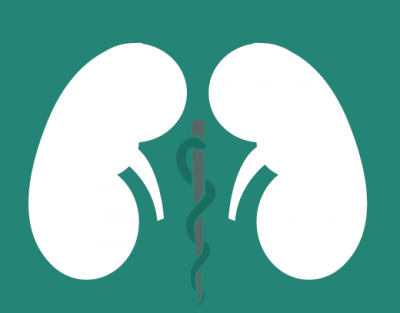
March 8th officially marks World Kidney Day and we here at SIMED want to let everyone know just how important your kidneys are for your overall health.
“They’re vital organs that serve multiple functions. We could not live without adequate kidney function,” said Dr. Martin Rifkin, a SIMED Urologist.
The kidneys’ primary function is to remove waste from the blood system. They do so by filtering 200 liters of blood daily. This filtration regulates your electrolytes and acid-base balance and is a major contributor to your blood pressure and red blood cell production.
Because your kidneys are doing all this work, they’re more prone to disease. According to the National Kidney Foundation, 1 in 3 Americans are at risk for kidney diseases. Unfortunately, most of the 26 million Americans who already have kidney disease don’t know it because there are often no symptoms until kidney disease has progressed.
“The most common problems I treat are kidney stones, kidney malignancy (cancer), kidney infections and kidney blockages and obstructions,” said Dr. Rifkin regarding his practice.
However, Dr. Rifkin also says diet and medications can be used to prevent and slow kidney diseases and possibly help to avoid those common kidney problems.
To keep your kidneys in tip-top shape you should:
- Drink lots of water throughout the day
- Maintain a healthy diet of fruits and vegetables
- Stay physically active
- Avoid overusing medications that are toxic to your kidneys
- Avoid eating too many animal protein products
- Avoid too much salt in your diet
A family history of kidney disease puts you at a higher risk of developing declining kidney function, as well as chronic medical conditions such as diabetes and high blood pressure. A long-term history of these medical conditions can lead to kidney failure, especially if these conditions are not well controlled.
Watch out for the warning signs of kidney issues:
- Fatigue
- Swollen of hands, feet or legs
- Abdominal cramps
- Flank pain
- Bloody urine
- Discolored urine
- Frothy urine
- Reduction of urine output
- Discolored skin
- High blood pressure
- Headaches
When it comes to the importance of your kidneys, Dr. Rifkin leaves us with these words of advice:
“It’s very important to have preventative health care and regular visits with your primary care physician for screening and detection of kidney disease. It’s possible to delay the deterioration of your kidneys with adequate prevention and intervention. Because if we can prevent or delay kidney disease or dialysis it can dramatically improve the quality of life of the individual and increase survival.”
If you would like more information on kidney health or believe you may be at risk for kidney disease, please contact the SIMED Urology Department at (352) 333-5400 or request an appointment with a SIMED doctor today.